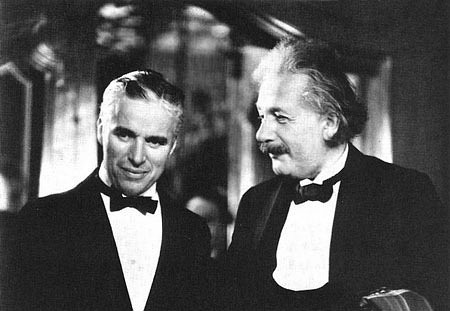With his pipe, genially self-effacing manner, and electrified hair, Einstein was too splendid a figure to remain permanently obscure,
爱因斯坦常手拿烟斗,和蔼可亲,不爱露面,一头乱发,真是个非凡人物。这样的人物不可能永远默默无闻。
and in 1919, the war over, the world suddenly discovered him.
1919年,战争结束了,世界突然发现了他。
Almost at once his theories of relativity developed a reputation for being impossible for an ordinary person to grasp.
几乎同时,他的相对论以普通人无法搞懂出了名。
Matters were not helped, as David Bodanis points out in his superb book E=mc^2,
结果正如戴维·博丹尼斯在他出色的《E=mc^2》一书中指出的,根本不解决问题,
when the New York Times decided to do a story, and,
《纽约时报》决定写一篇报道,
for reasons that can never fail to excite wonder—sent the paper's golfing correspondent, one Henry Crouch, to conduct the interview.
由于永远令人想不通的原因派了该报一个名叫亨利·克劳奇的高尔夫运动记者去负责这次采访。

Crouch was hopelessly out of his depth, and got nearly everything wrong.
这次采访令克劳奇力不从心,他差不多把什么都搞错了。
Among the more lasting errors in his report was the assertion that Einstein had found a publisher daring enough to publish a book that only twelve men "in all the world could comprehend."
他的报道里有许多令人难忘的错误,其中之一,他断言,爱因斯坦找了个胆子很大的出版商,敢于出版一本全世界只有12个人看得懂的书。
There was no such book, no such publisher, no such circle of learned men, but the notion stuck anyway.
当然,根本不存在这样的书,根本不存在这样的出版商,也根本不存在这么狭小的学术界,但这种看法已深入了人心。
Soon the number of people who could grasp relativity had been reduced even further in the popular imagination,
过不多久,在人们的想像中,搞得懂相对论的人数又少了许多,
and the scientific establishment, it must be said, did little to disturb the myth.
应当指出,科学界对这种神话没有去加以澄清。



